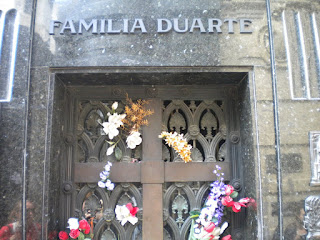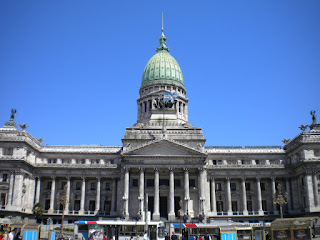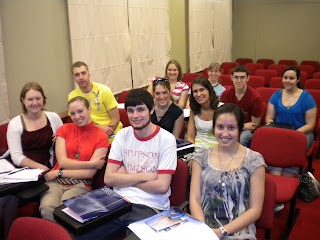Argentina had its Day of Remembrance on March 24. It is a day to reflect on the past, and, specifically to remember the people who have suffered under actions of the government. Argentines remember well the excesses of their government, especially under the military governments of the late 1970s and are determined to not let it happen again. Eliana invited us to go along with her and Diego to witness the protest first hand, and about half the group came.
We walked about half a mile with a LOT of people, and the crowd stopped in front of a Catholic church near the Flag Monument. Why congregate in front of the church? Because many of the worst atrocities carried out by the government in the late 1970s took place with no opposition from the church. The feeling among the crowd is that the church didn't do enough to stop the government. There were some people with torches, but the protest was peaceful. I actually saw a lot of families with small children in the crowd.



We walked about half a mile with a LOT of people, and the crowd stopped in front of a Catholic church near the Flag Monument. Why congregate in front of the church? Because many of the worst atrocities carried out by the government in the late 1970s took place with no opposition from the church. The feeling among the crowd is that the church didn't do enough to stop the government. There were some people with torches, but the protest was peaceful. I actually saw a lot of families with small children in the crowd.
Yes, there were a lot of people carrying banners.

More signs and flags.

This is on a platform right in front of the flag monument. A number of people spoke, and read the names of some of the people who, the government said, had "disappeared," never to be seen again.

As we left the Flag Monument we walked past the church again, and noticed that some paint balls had been thrown at the front door. I walked by this area the following week and the paint was all gone. Life returns to normal once more in Argentina.

JP

JP













































